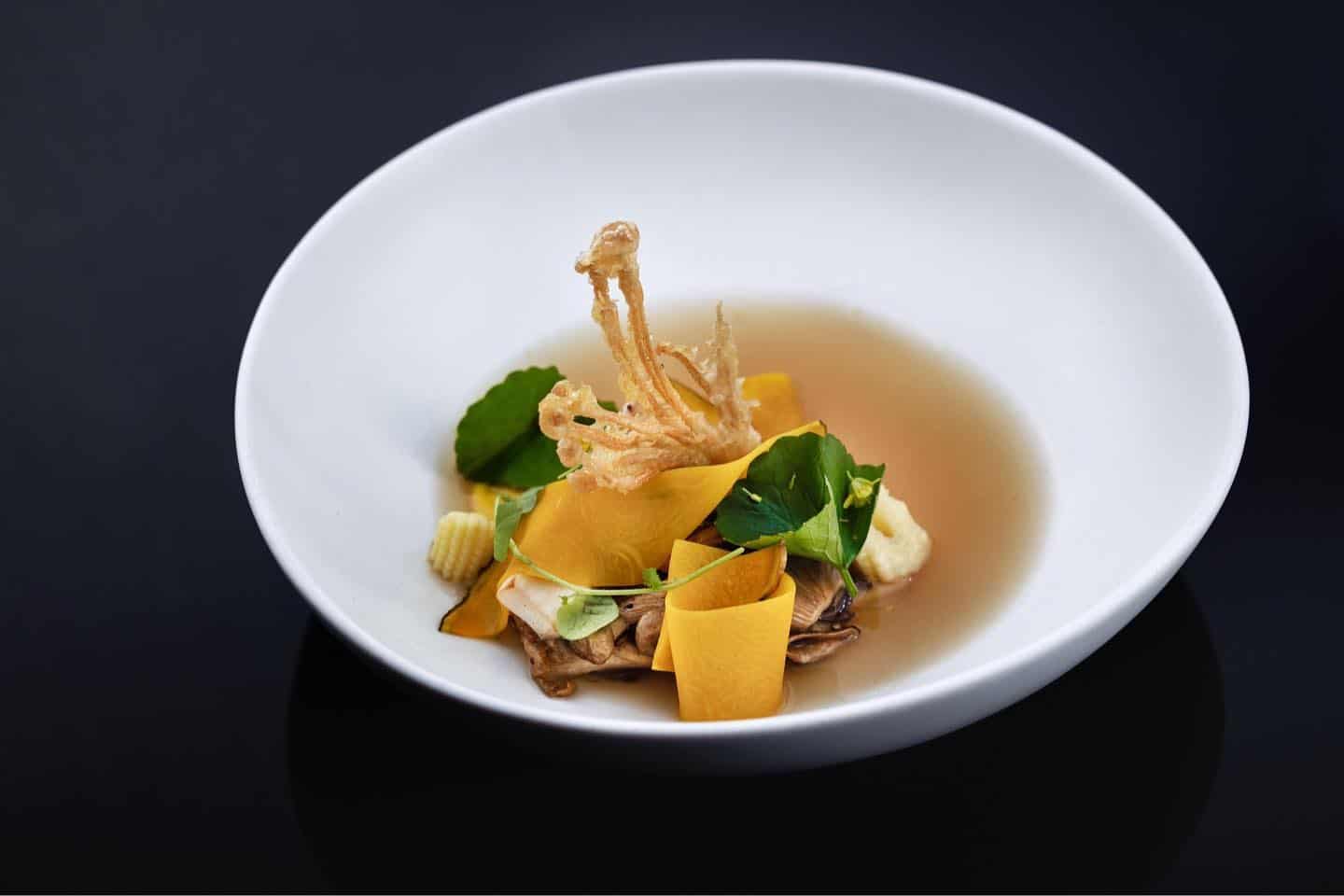
Bangkok –
The CV
Chef Thitid “Ton” Tassanakajohn, Bangkok
Alumni of Culinary Institute of America (CIA)
Owner of Le Du, Baan, Backyard by Baan
- If you want to open a restaurant to make money, it is a set-up for a 50% failure rate. Know your capacity and the risk you are willing to take. When you’re honest with yourself, you can succeed.
- The restaurant business is about the unexpected minor parts. You have to be willing to go beyond the call of duty. What do you do when the toilet breaks down? What do you do when your pumping system or dishwasher breaks down during service? If three of your chefs decided not to show up two hours before service, what do you do? You have to pull it together because there are mouths to feed. It is not about complaining, it is about getting it done. That is the mindset that everyone should have in the restaurant business.
- Do not chase after Michelin stars. You will be setting yourself up for a lot of mistakes and disappointments.
- Just make sure you work hard and have everything ready before you start. You only have one shot at it.
- A restaurant thrives because of its guests, not because of Michelin or Asia’s 50 Best. It is the diners that pay the bills that keep you cooking
What is your vision as a chef?
I want to change people’s perspective of Thai cuisine. Every corner of the world regards Thai food as the best street food and though there is nothing wrong with that, I don’t want people to perceive Thai food as merely cheap street food.

Words to young aspiring chefs
Young chefs, you must work hard at an early age. Work with someone you look up to. If you want to get even close to the level your role models have achieved, you have to learn from them.
You have to learn from the best to be even half of the best. People think that they can just walk out from culinary school and become a chef owner. Many people tried and failed.
Do not move jobs just because the position or pay is better. If a restaurant puts you at the meat station on your first day, it is not a good restaurant. Someone more skilled should do that job, not a rookie. You need to know what you can learn from the restaurants that you work for.
I worked at Eleven Madison Park, The Modern, and Jean Georges in New York not because I wanted to know how to perfect French cooking. I wanted to learn the techniques and thought processes; I wanted to align myself with how they thought about the menu, how they run the business, what they perceived to be good food.
How did you know it was the right time to open Le Du?
If you know where you want to be, try to find a way to get there. Get your way in, any way. Find out what further experience is needed, acquire it, and fulfill that checklist. When you think you are strong enough, go ahead and open your restaurant.
The easiest thing in running your own restaurant is the cooking. If you think cooking is tough, do not open a restaurant.
What goes into designing a menu at Le Du?
I start with something cold because in Thailand the weather is quite hot. My first few dishes are always refreshing for example:
Four-course tasting menu: 1 cold, 2 hot and 1 dessert
Six-course tasting menu: 2 cold, 3 hot and 1 dessert
Thai ingredients are not known to be highly priced so, how do you convince people to pay premium prices for your menu?
That was a problem in the beginning but I believe that if you want to fix a problem, you’ll have to start at the source. At that time, I thought to myself, how much care will you give to your own produce if you accept low prices from buyers?
I went straight to the source and when I started working with the local fishermen, I told them that I’ll pay double if they have ice on their boat to maintain the quality and freshness. Soon after that, they started to do it.
What is the most important component in your menu?
Produce and flavour.
Thai cuisine has the most complexity of flavours in the world balancing the five tastes – sweet, sour, bitter, salty and spicy.
This is our identity. Thai cuisine is very distinct in its flavours and I want my guests to experience the essence of Thai cuisine with my menu. Something about the dish will tell you “this is Thai flavours”, and this is what I want people to take away from Le Du.

Which do you value more, experience or passion?
Passion. People that want to learn is always a better option than an experienced person who does not want to change.
On winning a Michelin Star
It is like a dream for a chef. Like it or not, every chef wants it. Just like an actor who desires Oscar awards. Winning a Michelin star is a dream come true. It was a long process but it was worth it.
#QOTD:
“Running a restaurant is not an easy business. That is why you have to give it your best shot to survive. If you just do it because of money, you have already failed.”
“Do not chase after Michelin stars. You will be setting yourself up for a lot of mistakes and disappointments.”
“You need to educate the producers to get what you want. Because of that extra step, people will taste the difference. Why should we pay more for our local vegetables? Because they do not use any chemicals. What you see is what you get and it tastes so much better. Showcase that! It might not be the best in the world, but it can be just as good.”
What’s next…
We try to be better every year. That is the one and only goal we have. “Better” does not mean chasing after more stars or awards. “Better” means that we have to provide our customers with a better experience than before each time. We have a lot of regular customers and my goal is to for them to come back and think, “Oh! The food is better, service is better.”
Interview and words by Theresa Burhan. Edited by Lim Aileen. Food and outlet photography credit by Chef Ton and Le Du.









